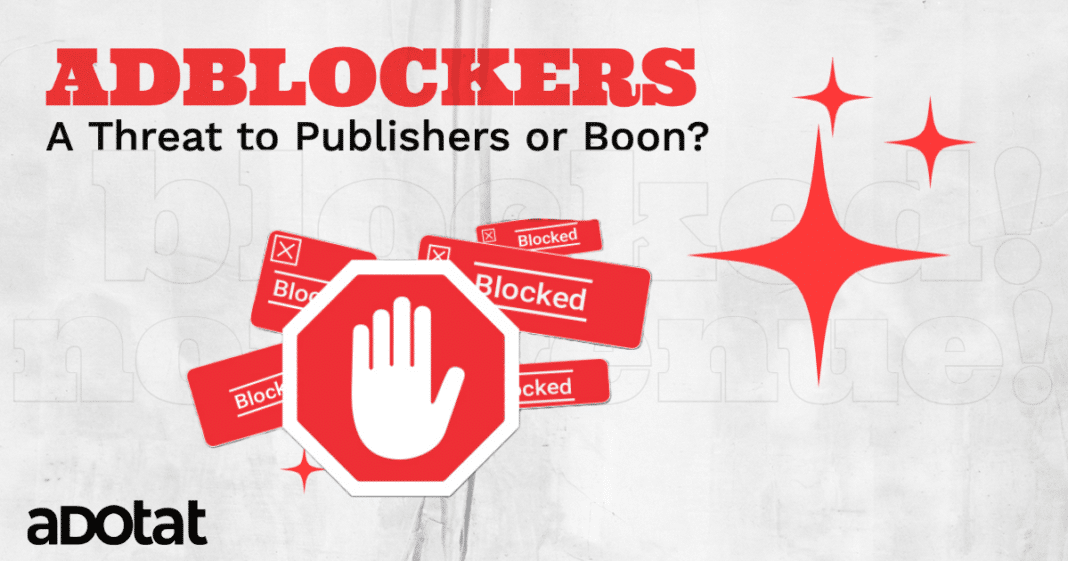We know that ad blockers are good for you. They’re like your favorite health food: they’re full of fiber and antioxidants, but they taste so good that you forget they’re good for you.
But what if the people who use ad blockers are actually reading more content? What if this isn’t bad for publishers?
That’s what a recent study in the Journal of Marketing Research found. They found that users who have adblockers installed read 21%–43% more articles than those who don’t.
They also spend between 13% and 29% more time per day consuming content than their non-adblocking counterparts.
The researchers also found that female and high-income users were less likely to adopt ad blockers than male and low-income users—a finding that may present publishers with segmentation opportunities based on whether or not a reader is using an ad blocker.
It’s interesting to note that another study found that ad blocker adoption increases the amount of time you spend reading news. That’s because ad blockers have a cognitive effect on consumers, regardless of whether consumers pay attention to them (Vakratsas and Ambler 1999). The reason is that the human brain processes information both consciously and subconsciously (Kahneman 1973).
Why? The theory is that by blocking ads, ad blockers may free up cognitive resources that enable users to read more articles.
But if you don’t have Ads, how do you make money? Well, we know that t ad blocker users are more likely to subscribe to news websites than nonusers of ad blockers.
In fact, readers who use ad blockers subscribe at a higher rate than non-ad blocker users according to the same study. This means that lighter users were more likely to subscribe after installing an ad blocker than heavier ones. In addition, the study found that the readership was more likely to visit more pages per visit, and they spent more time on each page than their non-ad blocking counterparts. This suggests that people using ad blockers are not only loyal but also engaged with the content.
Increased engagement with ad blockers could help news publishers, who rely on subscriptions for revenue. Also by focusing on the differences between ad blocker adopters and non-adopters, in terms of demographic characteristics and other traits, there is possible new revenue streams.
Because female and high-income users were less likely to adopt ad blockers than male and low-income ones, the remaining exposed users had a more valuable demographic profile. Ad blocking is also associated with an increased likelihood of purchasing products online and in stores.
Publishers may exploit the fact that people who do not use ad blockers are likely to be more willing than adopters of ad-blocking technology to endure exposure to ads.
A publisher could, for instance, sell subscriptions to users of ad blockers at a higher price than nonusers and show more ads to people who have not installed the software. This would increase revenue from advertising.
One interesting part of the study was the idea that perhaps news sites should stop paid advertising altogether.
But even if they do offer an ad-free version of their site, readers may still see ads while browsing articles.
The study found that many people find this experience annoying—especially when it slows down their web browsing and interrupts them as they’re trying to read an article. Does this mean some would pay more for no ads?
Why is this important to us? Because it allows us to think outside the box. We’ve assumed that ad-blockers are just a bad thing since it blocks revenue, but we never looked at why consumers are doing this, and how we can monetize their decisions.
Maybe we not going to try to stop people from using ad blockers. Instead, perhaps some need to look into providing a premium experience that gives them what they want—an ad-free experience.
It also raises some questions about the difference between consuming streaming video, where more and more people are okay with ads, and reading, where it seems to be more of an issue.
Out-of-the-box thinking will help grow the industry, even during these times. We must examine our notions about advertising, placements, and much more if we are going to grow.




